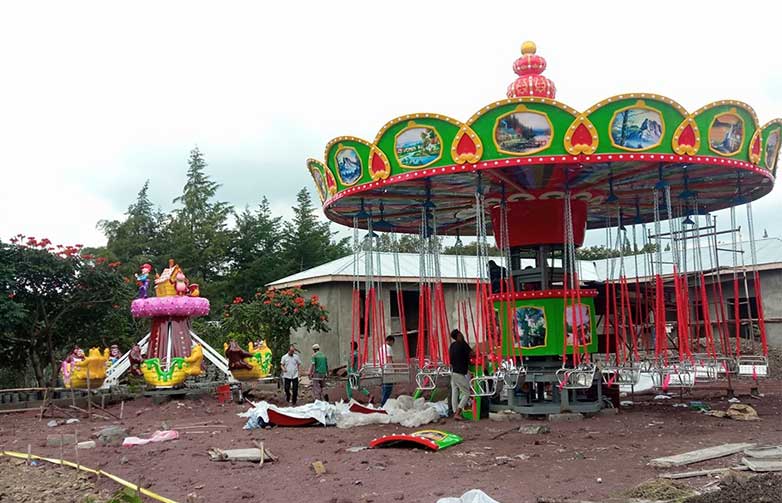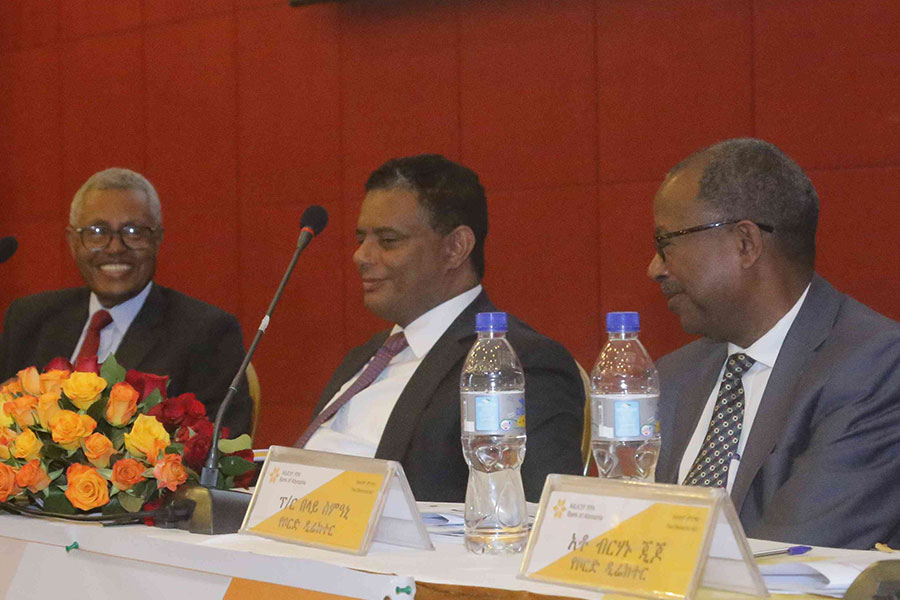
Radar | Aug 05,2023
A self-proclaimed industrial park alias "Hawassa Textile & Industrial Park" cannot enjoy the incentive packages available for other state-owned parks, even after completing half the construction work for textile and apparel manufacturers. The Industrial Park Development Corporation (IPDC) declined to recognise it as an industrial park.
The law requires that at least 65hct of land be developed for domestic park builders to access the incentive packages for parks. While this does not prohibit investors from accessing privileges, any arrangements the company makes with occupants of its sheds would be at its own discretion until it meets the legal requirements. Dwellers are not exempted from tax or safeguarded from expropriation and customs facilitation, according to the Project Facilitation Director of the IPDC.
Officials of the Ethiopian Investment Commission say all the benefit packages are accessible to the project, but the mandate to designate parks falls under the IPDC. Industrial parks are suffering from the AGOA exclusion and the Russo-Ukrainian war leading to slumped output. Established in 2014, the IPDC oversaw the construction of 10 industrial parks, with five developed by foreign investors. The nationwide employment in these industrial parks stood at 71,000 three years ago.
Financed by three local businessmen in the import and export business - Ahmed Abderwuf, Tamrat Damena and Alamin Mohammed - the private park rests on 11,000Sqm of 30hct land. The trio bought the previously state-owned Hawassa Textile Manufacturing for half a billion Birr two years ago.
The Chief Executive Officer (CEO), Ahmed Abderwuf, expects the project to be completed in a year and a half to house 14 sheds. The project budget stands at 4.5 billion Br and is at a 45pc completion rate awaiting the shipment of 450 containers of 40ft structural steel from China. The construction is undertaken by the Chinese Sinoma International Engineering, which also built Dangote and Derba Midroc cement plants.
The CEO said construction started before runaway inflation hit the construction sector in the last two years.
"We've not stopped for a single day," Ahmed told Fortune.
This trend in building industrial parks picked up steam following the Chinese "Reform and Opening Up" policy launched in 1978, propelling its industrial growth in the subsequent three decades. China currently uses industrial parks to implement preferential policies at the national and provincial levels that foster the development of industry and technology with the addition of special economic zones.
African countries followed suit in the mid-2010s, building industrial parks to boost manufacturing sector growth with assistance from international partners like China and UNIDO. Ethiopia adopted an industrial development strategy (IDS) two decades ago under the late Meles Zenawi. Despite the change in nominal leadership, the state-led development model has made building industrial parks an essential building block to the strategy.
Despite the declining inflow of investments from overseas, the privately owned textile industrial park aspires to rent out its spaces primarily to garment and apparel companies. They are projected to employ about 30,000 people at full capacity, according to the CEO.
The close neighbour state-owned Hawassa Industrial Park was expected to employ about 60,000 workers at full capacity when it was launched in 2016. However, the current employee count stands close to 26,000.
Ahmed is optimistic that the companies to lease the sheds in his park may get preferential offers to encourage local investors in the industry until they develop their project on a 65hct land and meet the minimum standard required to access the benefit packages.
Nataniye Kassaye, an expert with experience in industrial parks under IPDC, expressed the sentiment that any inflow of foreign capital would be a positive development. He also forecasts restoration into AGOA and applauds the entrance of private investors into the development of parks.
PUBLISHED ON
Dec 04,2022 [ VOL
23 , NO
1179]

Fortune News | Sep 28,2019

Radar | Jan 01,2022

Viewpoints | Aug 05,2023

Fortune News | Dec 17,2022

Viewpoints | Jul 27,2024

Dec 22 , 2024 . By TIZITA SHEWAFERAW
Charged with transforming colossal state-owned enterprises into modern and competitiv...

Aug 18 , 2024 . By AKSAH ITALO
Although predictable Yonas Zerihun's job in the ride-hailing service is not immune to...

Jul 28 , 2024 . By TIZITA SHEWAFERAW
Unhabitual, perhaps too many, Samuel Gebreyohannes, 38, used to occasionally enjoy a couple of beers at breakfast. However, he recently swit...

Jul 13 , 2024 . By AKSAH ITALO
Investors who rely on tractors, trucks, and field vehicles for commuting, transporting commodities, and f...

Jul 5 , 2025
Six years ago, Ethiopia was the darling of international liberal commentators. A year...

Jun 28 , 2025
Meseret Damtie, the assertive auditor general, has never been shy about naming names...

Jun 21 , 2025
A well-worn adage says, “Budget is not destiny, but it is direction.” Examining t...

Jun 14 , 2025
Yet again, the Horn of Africa is bracing for trouble. A region already frayed by wars...